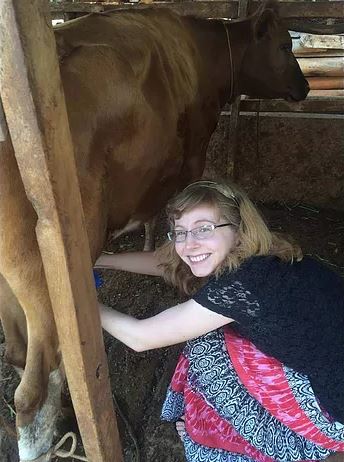It’s 4 a.m., and I’m tossing and turning in bed.
I’m surrounded by walls made of sticks and mud; feeling overwhelmed. My perspective on life is changing.
So many of my opinions and beliefs had been shattered on this four-month study abroad trip to Uganda.
“What did it mean to love my neighbor as myself? Was American culture leading me to a selfish lifestyle?”
As I wrestled with these thoughts, I went outside and became mesmerized by the beauty of the stars. The vastness of the sky was enough to remind me of how small I was in the Kingdom of God.

My time in Uganda challenged me to become part of something greater than myself–a community. Warm memories come to mind when I think back on the week I spent with the Kamwasirs, a rural family in the cool mountains of Kapchorwa. It was there that they welcomed me to become one of their own. They taught me to milk a cow for my own hot chocolate, carry sweet potatoes on my head and cook posho (mashed corn flour) over a fire. What I loved most of all were the nights I spent with my host siblings, sitting for hours in darkness while patiently waiting for a meal of bananas and g-nut (groundnut) stew. We didn’t have much–in terms of electricity or entertainment–but we had enough. We were content with the company of one another.
In America, we are constantly bombarded with distractions that isolate us from one another. Our culture demands that we “put ourselves first” at the expense of the people in our lives. Living with my selfless Ugandan family convicted me of this, and I –over time–learned to embrace life in a more intentional, community-centered way. In order for me to learn this lesson, I had to escape “the familiar,” and venture out of my comfort zone.
This is what spending a semester abroad is about. When we are in situations of discomfort, we are better able to hear the voice of God because we recognize how much we need Him. This helps us grow in our faith and moves us toward our goal of becoming effective servant-leaders in the community. Studying abroad is a transformative experience, and in the near future, I hope Milligan increases opportunities for more students to take part in that experience.
Every student who wants to grow in Christ and in character should be allowed the chance to do so.

